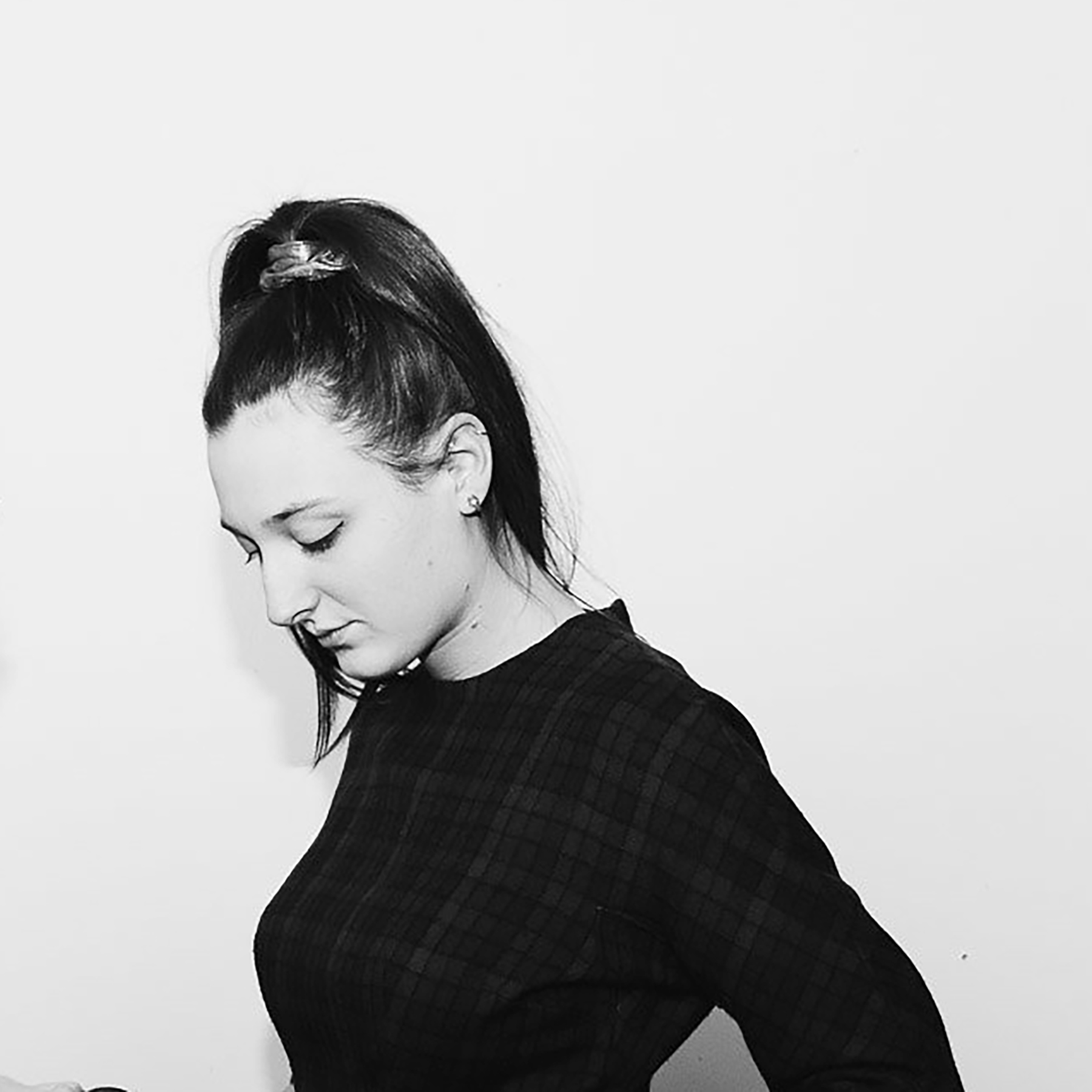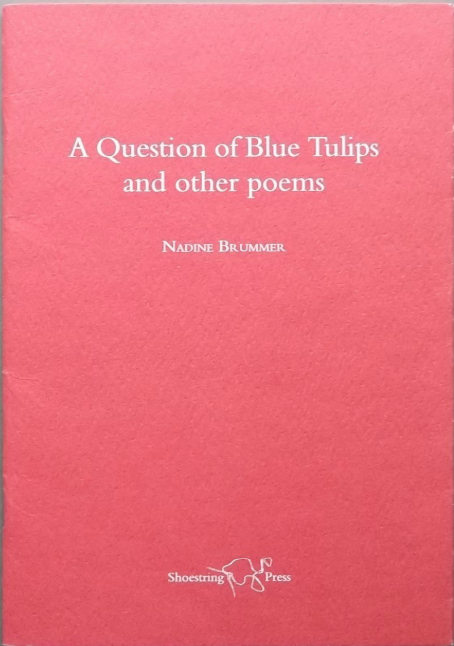ISSN: 1941-4137
POETRY THAT ENACTS THE ARTISTIC AND CREATIVE PURITY OF GLASS
POETRY THAT ENACTS THE ARTISTIC AND CREATIVE PURITY OF GLASS

Mariel Fechik lives in Chicago, IL and works in a library. She sings for the band Fay Ray and writes music reviews for Atwood Magazine and Third Coast Review. Her work has been nominated for Best of the Net and Bettering American Poetry, and has appeared or is forthcoming in Hobart, Tinderbox Poetry Journal, Cream City Review, Yes Poetry, and others. She is the author of Millicent (Ghost City Press, 2019) and An Encyclopedia of Everything We’ve Touched (Ghost City Press, 2018).
Previously in Glass: A Journal of Poetry:
Gifted Bodies
July 26, 2019
Edited by Stephanie Kaylor
#TBT Reviews Series
Edited by Stephanie Kaylor
#TBT Reviews Series
Review of A Question of Blue Tulips by Nadine Brummer

A Question of Blue Tulips
Nadine Brummer
Shoestring Press, 1998
Midway through the first poem in her collection, A Question of Blue Tulips (Shoestring Press, 1998), Nadine Brummer asks, “Can flowers be both gorgeous and obscene?” This seems to be the question, carrying the reader through each strange and stunning vignette in the collection. The book begins with a startling image: “Head, hands, genitals and feet / are main events — he does them well.” The speaker is “At the Lucian Freud Exhibition,” observing the oddly colored portraiture of the (now) late artist. At the time of publication, Freud was still living. The speaker stares at “an orchidaceous pink” while “buttocks sag / into an off-white stool.” The poem is filled with juxtapositions of the grotesque and the lovely, all while the speaker stands as a foil to the entire scene: “This cold October day / I’m in a crowd well-heeled and buttoned up / engrossed with such carnality.” A Question of Blue Tulips is a book both delicate and unwieldy, weaving stories of flowers and art and wildlife and Judaism and mythology and family ties. Though there isn’t one central, binding theme, the writing itself is tied together by its beauty of language and detail.
The poems are located between the traditions of Anne Carson and Mary Oliver, the language simple but enormously impactful. Brummer’s talent lies in her ability to create extraordinarily specific vignettes. The details in each poem comprise a small scene that can easily be expanded upon by the reader — for example, in “The Visit,” another museum is described. In a small, compact narrative, the speaker describes bright paintings of angels, “gravity of hair / falling like rain, gold halo suns, / and that courteous offer of a lightbulb pear, / all one vast annunciation, whose colours / took hold.” The speaker then recalls a memory of a colleague saying, “‘You are looking very beautiful these days,’” before being “surprised that anyone at all / had noticed such new love, transfiguring.” All at once, we can imagine this person, so struck by a new love that it shows in their physicality — mirroring the gilded portraits they observe on the gallery walls.
In other poems, there is weariness and sadness. In “Rent,” we are privy to a funeral preparation. An unspecified relation has died, and a footnote at the bottom explains, “According to Orthodox Jewish law, a funeral must take place within 24 hours of a death and next of kin are required to have an item of clothing rent.” The poem begins, “They teach you what it is to mourn / before the hearse sets off.” The poem includes a cut-off prayer, the sharpness of the tailor’s tools. The poem is terse in tone, perhaps a weariness of tradition, wanting the period of mourning past. In another moment of sadness, “That Rank Bed,” a description of a dying marriage: “a double bed / a loveless garden / where vows had gone to seed.” The speaker lies between them on “those childish half-clothed mornings.”
The poem I keep returning to is near the end of the collection. In “Black Fruits,” once again the details are exquisite: “On my birthday I pick / black fruits that the sun / has brought to perfection.” The speaker picks sloes from blackthorns, the berries with “that stony look where / a fluorescent blue / grows opaque… the air bright / with globules of black.” In the last moments of the poem, we are suddenly in Greece: “Demeter, perhaps, / laughed as she picked / fat fruits on thorns, / love-gifts exhumed / from her lost daughter.” This is a melancholic end to a poem of summertime, and this moment mirrors the rest of the collection. There is perfect detail, yet a sense of unreality throughout each. Gilded angels watch from the corners, family stories turn to mythology, the natural world gives way to fairy-tale. It’s a beautiful book, full of softness and ugliness.
Yes, flowers can be both gorgeous and obscene. It’s what makes the world interesting.
Visit Shoestring Press' Website
Glass: A Journal of Poetry is published monthly by Glass Poetry Press.
All contents © the author.
All contents © the author.





